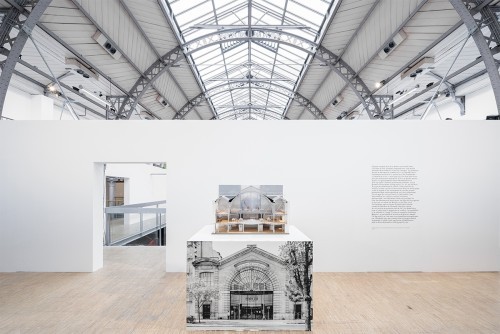Conserving Adapting Transmitting
Materials, construction, electricity, heating, carbon is everywhere in construction, from design to use. Also, the best way to reduce emissions from this sector, one of the most carbon-intensive, is first of all not to demolish in order to rebuild, to preserve in order to store, to adapt forms and materials in order to transmit more virtuous buildings in their functioning and their urbanity. The principle of remaking the city on itself is not new, but carbon is radically changing the era. It obliges and questions all the heritages and all the times of the project.
How to acclimatize and open up a Haussmann block while keeping its identity? Repairing a modern office tower or apartment buildings to make them more energy efficient? What to do with an old telephone exchange, obsolete university laboratories or an electrical transformer? Can we live in a parking lot? Gardening in a maternity ward? Converting a monofunctional building into a mixed programme?… How to consume less and offer more?
Through the analysis of some forty renovation, rehabilitation and reconversion projects for which permits were filed in Paris between 2020 and 2022, and the winners of recent competitions, the exhibition and the book Conserver Adapt Transduire wish to report on these new production methods which combine climatic issues, heritage desires and programming adapted to contemporary expectations. The multiple answers, unveiled through models and drawings specially produced by the architects, provide a panorama of the fundamentals of the Parisian architecture of tomorrow. In search of durability and energy performance, they develop simple and passive devices rather than electrical or digital systems. This translates into renewed geometries often reinterpreting known forms: pleated facades to protect, thick to regulate, chimneys to ventilate, gardens to temper, high ceilings to cool, crossing spaces to ventilate, caps to shelter,
In Paris, 70% of urban planning authorizations filed relate to transformation operations and this share continues to increase. These transformations open up an extremely stimulating field of exploration for urban and architectural disciplines by combining the principles of resection, repair and constructive rationalization. Under the prism of economy of means, respect for the work of previous generations and the long-term inclusion of buildings that contribute to and found the city, hybrid objects are invented, reasoned in their implementation and frugal in use. The promise of constructions capable of coping with global warming and the scarcity of resources which simultaneously combines three commitments: conserving, adapting, transmitting.
